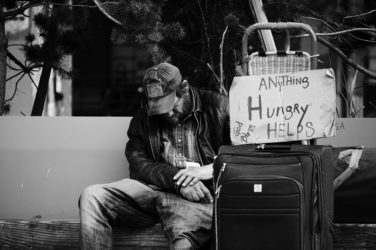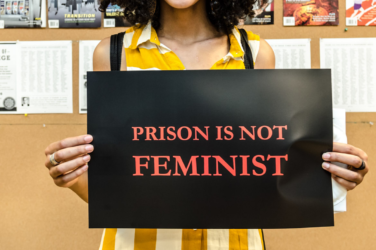One night in 1995, Aron Tuff (above), a veteran dealing with back pain, was gathered with friends in one of their front yards in Georgia. Flashlights dashed across the lawn as law enforcement officers suddenly arrived at the party.
The police found small amounts of cocaine—0.3 grams to be exact—in the grass near Tuff, and, after searching him, $90 in cash. He was charged with possession with intent to distribute and convicted to a life sentence without the possibility of parole due to prior convictions related to his drug use.
Stories like Tuff’s are far too common, yet they remain overshadowed by the racist stereotype of “a Black or Latino ‘kingpin’ pushing his drugs on innocent white people.” Tessie Castillo has described for Filter how such stereotypes are harmful and unjustifiable—and how drug dealers are the wrong people to blame for the overdose crisis.
That’s why, on March 19, the Drug Policy Alliance (DPA) released a nine-part video series, titled “Rethinking the ‘Drug Dealer,” to tackle these pernicious myths head-on.
“We grow up being told that drug dealers are the worst of the worst,” said Alyssa Stryker, DPA’s criminal justice reform manager, in a press release. “We’re told we need to put them in prison for decades because they’re violent kingpins getting rich by preying on people who use drugs.”
Instead, the majority of people selling drugs—about seven in 10—also use drugs themselves and are not rich. They are “working at the very bottom of drug selling hierarchies and barely making ends meet,” Stryker points out. “Many are not involved in any kind of violence or coercion, and are simply trying to support their families under challenging economic conditions.”
Even though the United States is majority-white, and white people have been shown to sell drugs at similar rates to other races, 76 percent of federal prisoners convicted under trafficking laws are Black or Latino.
“We need to stop sending people like this to prison for decades,” added Stryker. “And ultimately we need to stop relying on criminal punishment to address this issue and instead focus on fixing the prohibitionist policies and underlying structural economic issues that drive people into drug selling in the first place.”




Show Comments